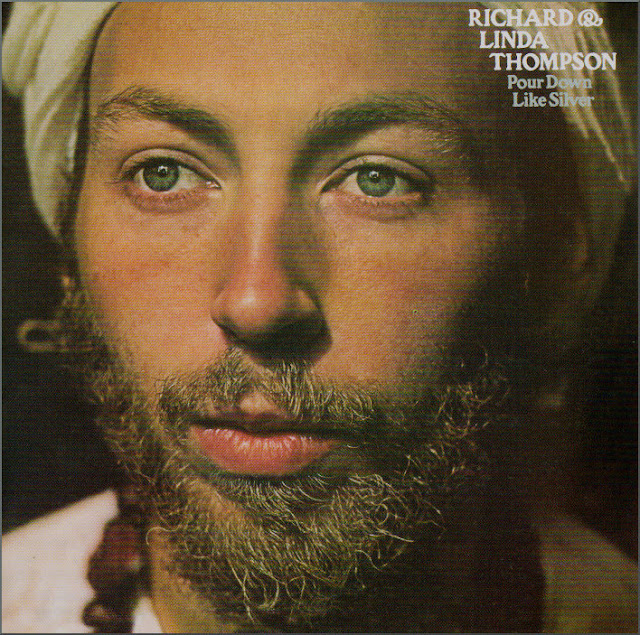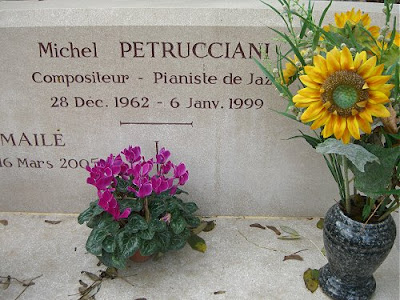Are authentic performances a silly convention?

'The 'hands-off attitude of the specialised musician has its roots, I suspect, in a deep seated loss of confidence, so that we rely increasingly on rules and evidence as a means of evading responsibility for artistic judgements. It is this quality of confidence which is so striking to modern ears in 'pre-authentic' playing, as in the Bach performances of Casals and Hamilton Harty, for example: a bedrock of convictions on which their particular 'authenticity' resides.'That observation on authenticity in contemporary music from Messiaen authority Peter Hill takes us down an interesting path. The link between Peter Hill's 'convictions' and Jonathan Harvey's 'conventions' is more than alliteration. Because performance conventions may originate from the past, as with the rules of concert etiquette, or they may originate from the present, as with authentic performances of early music.
Peter Hill mentions Casals' Bach and the CD set above illustrates quite magnificently how conviction can triumph over convention. Among the 10 CDs are Casals' classic accounts of the Cello Suites from the 1930s and his 1950 account of the Brandenburg Concertos from the first Casals Festival which was held in Perpignan. The latter recording was made with Casals' Prades Festival Orchestra augmented by the following stellar line up of soloists:
Alexander Schneider [4], Joseph Szigeti [5] violin, Paul Tortelier [2] cello, John Wummer [4 & 5], Bernard Goldberg [4] flute, Marcel Tabuteau [2], Laila Storch, John Mack oboe, Maurice Allard [1] bassoon, Lucien Thevet, Gérard Coursier horn, Marcel Mule saxophone, Fernando Valentin harpsichord, Eugene Istomin [5] piano, Prades Festival Orchestra conducted by Pablo Casals. Figures in brackets refer to the concertos in which the soloists play. Below is the cover of the 1951 Perpignan recording of Beethoven's Archduke Trio made with Pablo Casals, Eugene Istomin and Alexander Schnieder.

It was conviction rather than convention that drew front desk players including Toscanini’s NBC flautist John Wummer, Philadelphia oboist Marcel Tabuteau, Cleveland bassoonist John Mack and Budapest Quartet member (and Casals' orchestral 'fixer') Alexander Schneider to a remote corner of barely post-war France when air travel was still an act of faith. They came to play and record Bach in primitive conditions and the result was one of the classics of the gramophone. The power of the performances does not come from the precision of the playing or from the sound quality, and most certainly not from musicological 'authenticity'. The power comes from what Peter Hill describes as the 'bedrock of convictions on which their particular 'authenicity' resides'.
It is one of the paradoxes of today's culture that we pay lip service to inclusivity by means of rules and evidence, while practising exclusivity by choice. Classical music is desperate to reach new audiences, and to do so enthusiastically embraces innovations such as reality TV shows featuring classical musicians. But what would the critical reaction be if the 2011 BBC Proms featured the sure fire sell out of the Brandenburgs with Gustav Dudamel conducting the Simón Bolívar Youth Orchestra augmented by principals from leading international orchestras and Lang Lang playing piano?
* Pablo Casals, A Portrait is released on the German Membran Music label and also includes Casals' 1945 recording of the Elgar Cello Concerto with Adrian Boult conducting the BBC Symphony Orchestra, a partnership that prompted Sir Adrian to say of Casals, "There is no known conducting technique for keeping an orchestra together with this man. The only useful practice would be fly-swatting". The very low priced Membran discs are presumably unlicensed copies of the out of copyright originals. The whole area of unlicensed out of copyright releases, which are legal in countries where the copyright has lapsed, is a vexed one. This blog has always defended the intellectual property rights of musicians. But the counter argument is that the musicians, or their estates, do not benefit from these old recordings, and that the only beneficiaries are corporate record labels whose ownership has changed umpteen times since the original release. Anyway, how may of us send a cheque to Van Gogh's estate for the reproduction of the Sunflowers hanging in our downstairs WC? I paid less than £10 including delivery for for Pablo Casals, A Portrait from an Amazon reseller and have negated the resultant negative karma with a recitation of the Mahayana Sutra of the Three Superior Heaps.
** Sadly Gustavo, Yang Yang et al were unavailable. So my Chance Music programme on Sunday November 7, which is a musical homage to Catalonia, will include Pablo Casals' and the Prades Festival Orchestra's 1950 account of Bach's Brandenburg Concerto No. 5, complete with piano solo. More on Casals in Prades here.
*** Thankfully Pablo Casals is not forgotten, but Hamilton Harty is. Which is surprising, as Harty composed wonderfully accessible but deeply unfashionable music that would surely win classical music some new listeners if it was better known. To try to rectify that neglect just a little, below is my 1979 Chansos 2 LP set of Harty's orchestral music which includes his 1920 arrangement of Handel's Water Music. Bryden Thomson and the Ulster Orchestra play with wonderful conviction and confidence, and the mention allows me to link to my post about the forgotten maestro who was the Ulster Orchestra's first conductor.

Also on Facebook and Twitter. Peter Hill quote is from his article '"Authenticity" in Contemporary Music', Tempo 159 (December 1986). Any copyrighted material on these pages is included as "fair use", for the purpose of study, review or critical analysis only, and will be removed at the request of copyright owner(s). French trivia - on my first-ever visit to France in 1965 I stayed at the Lycée François Arago in Perpignan, a short distance from where Casals had recorded the Brandenburg's fifteen years earlier. A few weeks ago I returned to Perpignan and visited the Lycée, my thanks go to the staff there for being so welcoming. Report broken links, missing images and errors to - overgrownpath at hotmail dot co dot uk










Comments
Did you know he worked with David Bowie..? I think it was a film called The Hunger.
Great post as ever
best
Philip
The useful comment from Ian below was posted to my Magic Mountain article - http://www.overgrownpath.com/2010/10/magic-mountain.html
I am repeating it here as it is relevant to Casals and is a source of recordings (but not the Brandenburgs) from the original copyright owner. At that price don't hesitate.
A great read.
Was pleased to find the Casals Original Jacket Collection discounted to €13 and change at Amazon France: http://www.amazon.fr/Pablo-Casals-Original-Jacket-Collection/dp/B003KHJJNE/
"It's a remarkable acheivement: between 1963 (Freewheelin' Bob Dylan) and 1967 (John Wesley Harding) he invented half a dozen ways of being authentic."
http://musicology.typepad.com/dialm/2007/01/more_on_pop.html
Until reading that I'd assumed there was only one way to perform a piece authentically, not that there might be several ways.
But then Casals and Dylan did share the same record label.
And this is often intended to suggest that if a performance is not authentic (by whatever criteria are being used at the moment), then it is inferior ... because it's "not authentic," don't you see?
I suggest "suitability" as a more fruitful term. Simple example - are the Bach partitas suitable to be played on a modern Steinway? For many performances I've heard, the answer is "yes." (And one postive aspect to suitability is that it requires some judgement, and can be debated. However, if someone disqualifies a Bach recording on the piano because it does not use a harpsichord and is hence not authentic, that doesn't take you anywhere.)
Is Casals' performing style suitable for the Bach cello suites? Yes. The reality that someone can point out elements which are not "authentic" is of little or no interest to me.
It's interesting (well, often it is) to hear about elements of "historical accuracy". Example - "This harpsichord is of a style that was not used until some years after Byrd's death." OK, but is it suitable to play his music? Peter Watchorn's excellent Tudor/Jacobean keyboard recordings are "inauthentic" in just this way, but this detracts not a whit from their excellence.
One final example to illustrate the slipperiness of "authenticity" - Beecham's (in)famous 1959 Messiah (the one with Jon Vickers, Giorgio Tozzi et al). It's sometimes inappropriately dismissed as the last gasp of the inauthentic bloated Edwardian type Messiah. However, Beecham's accompanying essay makes clear that he is not trying to resurrect that traditon. Rather, he's concerned that the then newly-fashionable very small performing forces can't do justice to works like Messiah in a large concert hall. What he's trying to do is augment small forces to get an authentic effect on the audience, rather than go for authenticity of instrumentation and performing forces.
None of this is to dismiss the work done on more historically accurate instruments, performing styles, and so on. Listeners are richer for this work. However, the label "authentic" can too easily act as a straitjacket
One of the challenges of writing On An Overgrown Path is the wide range of readership that needs to be accomodated. When I finished the post it occured to me that there may be a few readers who may not know what an 'authentic performance' is.
To clarify this I linked the first occurence of 'authentic performances' to a the Wikipedia article which is actually headed 'Historically informed performance'. That terminology seems, to me, to be more helpful as it makes no claim to be definitive.
'Historically informed performance' also has the major marketing plus of abbreviating to HIP.